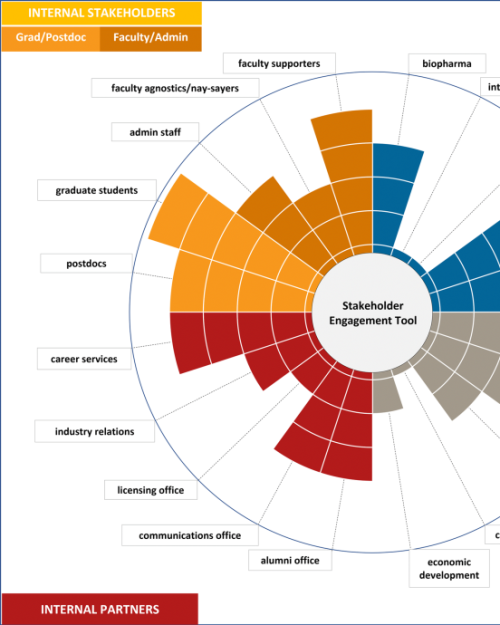Career development offices benefit from collaborations and network development with industry employers, a new study finds.
The study, “Using Stakeholder Insights to Enhance Engagement in Ph.D. Professional Development,” published January 27 in PLOS ONE.
A team of researchers including Susi Varvayanis, executive director of the Graduate School’s Careers Beyond Academia, and Conrad Smart, physics doctoral candidate, interviewed 45 stakeholders from academic institutions about their perspectives on career development for doctoral students. Using a stakeholder engagement visualization tool developed by the authors, they assessed stakeholder-identified strengths and weaknesses.
Before expanding to encompass the humanities and social sciences, Careers Beyond Academia was known as Cornell Broadening Experiences in Scientific Training (BEST) and tailored its programs to STEM doctoral students and postdocs. Cornell BEST helped initiate this project following a 2018 National Institutes of Health BEST Annual Meeting, during which institutional members of the consortium collaborated with institutions outside the consortium to expand impact.
“The value for career and professional development (CPD) activities for pre- and postdoctoral researchers is recognized among stakeholders, but effective efforts depend on a constantly updated understanding of stakeholder needs, to help empower pre- and postdoctoral researchers to describe, frame, or align their skills with the needs of the workforce,” said Varvayanis. “CPD offices are often short-staffed and could leverage partners on and off campus, but aren’t always sure where to start. The stakeholder engagement tool can be used to overcome this obstacle.”
Smart, a member of the Careers Beyond Academia advisory board, used his skills in data visualization techniques to develop the stakeholder tool, which is a program that allows users to gain feedback on how effectively they are engaging resources at their institutions.
“My hope is that the work at large, and the tool in particular, will help other Ph.D. development programs engage with the full breadth of resources that their universities have to offer,” he said.
At Cornell, Varvayanis hopes to use the stakeholder engagement tool to guide doctoral students and postdoctoral scholars to increase their networks, learn about potential employment sectors, and develop their skills accordingly while at the university.
The paper was co-led by Deepti Ramadoss from the University of Pittsburgh and Amanda F. Bolgioni from Boston University. The papers’ other authors are Rebekah L. Layton, University of North Carolina at Chapel Hill; Janet Alder, Rutgers University; Natalie Lundsteen, UT Southwestern Medical Center; C. Abigail Stayart, University of Chicago; Jodi B. Yellin, Association of American Medical Colleges; Conrad Smart, Cornell University; and Susi Varvayanis, Cornell University.
Read the story on the Cornell University Graduate School website.




